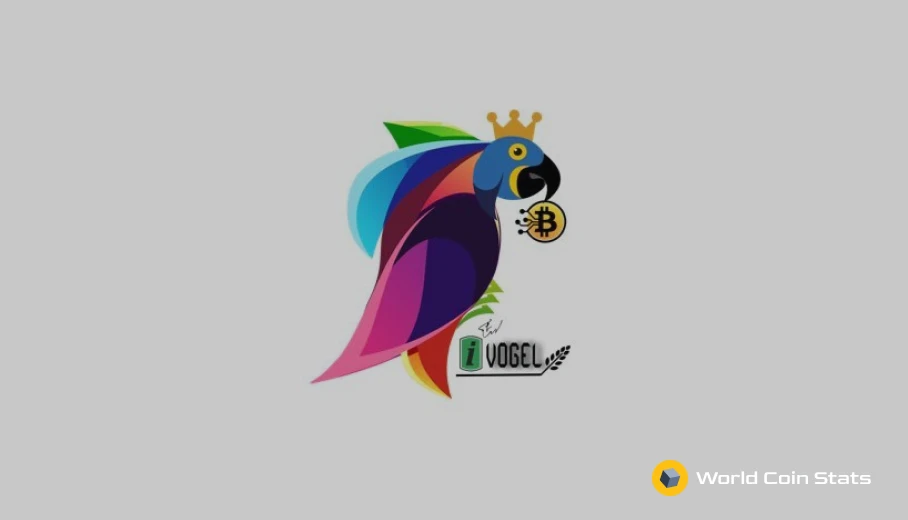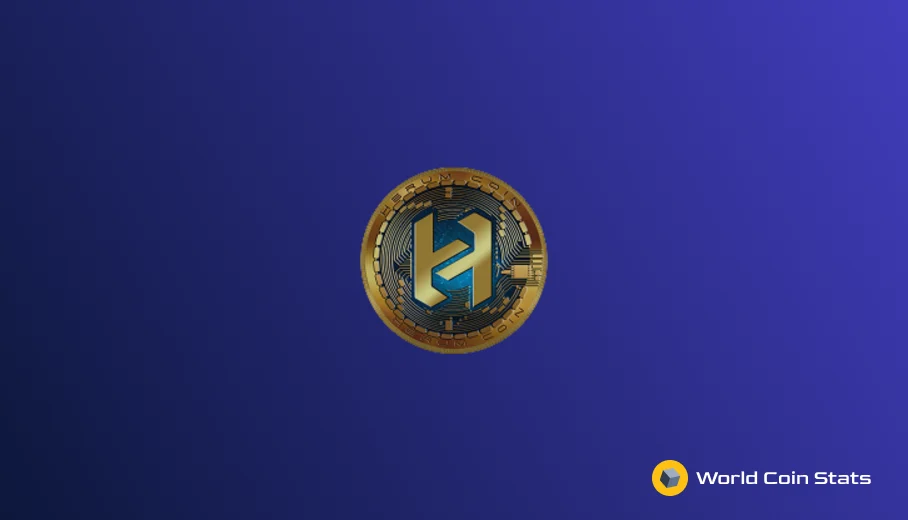What Happened to IVOGEL (IVG)? Will IVG Recover?
Decentralized finance (DeFi) is an industry where fortunes can be made or lost. These fortunes are most often made by the founders. Though some savvy investors will figure out ways to earn extremely large sums of money by taking advantage of the high staking rewards and arbitrage opportunities common in DeFi.
Some of these DeFi projects, like Uniswap, are actually quite useful and relatively. But some DeFi projects are terrible projects from the beginning.
Ivogel falls into the latter category. This article will offer a brief description about Ivogel, what happened to this project, and if it will ever recover.
What was Ivogel?
First of all, Ivogel is not an active project. The Twitter account has not been active in over a year and the website is currently down. We had to use the Wayback Machine in order to find information about this project.
And this is one of the worst DeFi projects we have ever seen.
The whitepaper rambles on about the pitfalls of capitalism and then starts talking about endangered birds. There’s next to no formatting, so it’s just a wall of text talking about endangered birds and how you can protect them.
You would think that Ivogel is a DAO based around protecting endangered birds – it’s not.
The whitepaper then jumps to stating that Ivogel will solve all the problems in the cryptocurrency industry and cure the problems with capitalism.
It makes no sense.
What do birds have to do with cryptocurrency? Why is 90% of the whitepaper talking about endangered birds? How will Ivogel solve the problems of capitalism and DeFi?
It gets even worse when looking at the website. It looks like it was just a basic template purchased off of ThemeForest for $20. It’s just black text on a white background. They even forgot to remove some of the lorem ipsum placeholder text.
Based on this, it’s glaringly obvious that Ivogel was a scam project from the beginning. This did not stop investors from investing their hard earned money into the project, though.
What Happened to Ivogel?
The founders of Ivogel rugged the project almost immediately after launch. This project actually received a fair amount of investment, which is a testament to the gullibility of the general public.
Anyway, the price chart for IVG tells the story.
There was an immediate spike in price before a massive collapse. The collapse was caused by the developer wallet selling all their IVG tokens and draining the liquidity pool of all the BNB (the token was on the Binance Smart Chain).
Will Ivogel (IVG) Recover?
No, IVG will never recover. The founders rug pulled (scammed) investors out of all their money over a year ago.
They are not coming back to resurrect the project. If they do come back, then it’s almost certainly to scam investors a second time.
What Can I Do With My IVG?
You can’t do anything with your IVG tokens as they’re practically worthless. Now, you could actually sell them for a 99.99% loss, but that’s almost pointless.
If you have IVG tokens, then let that serve as a lesson on what to avoid in DeFi projects.
Is Ivogel (IVG) a Good Investment?
No, IVG is an absolutely terrible investment. The project does not even have a working website and the official Twitter account has not been active in over a year.
This is a dead project and one you should not consider investment worthy. Anyone promoting this project is likely doing so as some sort of pump and dump scam or they are terribly misinformed.
How to Spot DeFi Rug Pulls and Scams
There are a lot of rug pulls and scams in DeFi. We cannot cover all the scams in DeFi. However, we can offer some general tips that should keep you safe most of the time.
You should understand that these tips are fairly conservative. You will likely lose out on some opportunities to make money, but you will probably not get scammed if you avoid projects that have a lot of red flags.
Anonymous Founders
The biggest red flag that a DeFi project will rug pull is anonymous founders. No one wants to associate their name with fraud, so they will keep their identity hidden if they plan on rug pulling.
We avoid DeFi projects that have anonymous founders. Most DeFi projects have anonymous founders, so this ends up narrowing the pool for potential investments quite a lot.
Horrible Whitepaper
We mentioned that the whitepaper for Ivogel was one of the worst whitepapers we have ever seen.
This is a sign that a project is probably a rug pull. These projects are usually founded by people with a very limited understanding of cryptocurrency and DeFi. And the author of the whitepaper is often a cheap freelancer on Fiverr that has no understanding of cryptocurrency or DeFi.
That’s how you end up with a DeFi whitepaper giving tips on how to protect endangered birds and explaining the importance of birds.
If the founders can’t properly explain the project in the whitepaper, then it’s not a project worthy of an investment.
High APR or APY
Projects that have a triple digit APR or APY are almost always scams at worst. The best case scenario is that they are legitimate projects run by founders that have a limited understanding of basic economics.
Either way, you cannot mint billions of tokens without crashing the price of the token.
Avoid projects that have an absurdly high APR or APY for staking.
Now, the inverse of this (projects with low staking rewards) is not always true. Some of the more intelligent scammers have realized that investors are wary of investing in projects with high staking rewards, so they make the staking rewards somewhat sustainable.
You can use the other tips listed to spot these scams, though.
Binance Smart Chain Projects
This is the most controversial red flag on the list – the majority of DeFi projects on BSC are scams.
Binance Smart Chain is a perfectly fine blockchain. It does have some centralization problems, but the fees are low and it’s fast.
The low fees of Binance Smart Chain have attracted too many scammers, though. It costs next to nothing in fees to deploy a smart contract on BSC, so scammers can launch thousands of scam projects without paying a lot in fees.
This has resulted in BSC becoming saturated with scams because the scammers only have to make a few thousand dollars to recoup their investment. This is opposed to Ethereum where it can cost thousands of dollars in fees just to launch a smart contract.
Not to mention that DeFi investors on Ethereum are a little more experienced and aware of scams than investors on BSC.
Our tip – avoid DeFi projects on BSC.
Lots of Bot Promotion
Bots are extremely common in 2022. They are especially common on Twitter with some estimates stating that over 60% of Twitter users are bots.
These bots are mostly used for promoting unethical, illegal, or fraudelent products and services. This is because the products or services are scams, so real people do not talk positively about it online.
Massive red flags pop up whenever we see projects using bots for promotion on Twitter. Why are real people not talking about this project?
We generally avoid projects that use Twitter bots for promotion.
Too Many Giveaways
Giveaways are a popular tool to increase a following. However, projects that use giveaways for promotion are generally looked down upon by cryptocurrency investors.
They view this as a way to inorganically increase followers and engagement. This raises the question, if your project is so good, why do you have to do giveaways for promotion?
None of the major cryptocurrency projects (barring memecoins) have done giveaways for promotion at any point in their history. They have a good product and they know it, so they don’t need to do giveaways.
Poorly Designed Website
Our final tip is to avoid projects with a poorly designed website.
The quality of the website actually offers quite a bit of insight into the commitment of the founders.
If the project has a website that is horribly designed, still has lorem ipsum text, and has poor quality English, then how committed do you think the founders are to the project?
Basically, if the founders only put $100 into a website for a project meant to change the world, would you even take them seriously?
You probably would not take them seriously.
That’s why we tend to avoid projects with poorly designed websites.
Of course, having a good website does not mean a project will be a success. It’s not difficult to have a nice looking website in 2022, which is why having a bad one is such a bad sign.
It shows that the founders are putting no effort into the project.
Final Thoughts
That covers it for what happened to Ivogel – the founders rugged the project. It’s highly unlikely that the token’s price ever recovers, so you can just chalk it up as a loss in your portfolio.
The silver lining is that Ivogel offered a lot of insight into how these scam projects operate. It also showed that a project really only needs to promise a high APR or APY and people will invest in the project.
This should make you realize the importance of doing your own research. Don’t just invest in a project because CoinMarketCap says the price has risen or you see people (probably bots or paid shills) talking about it on Twitter.



